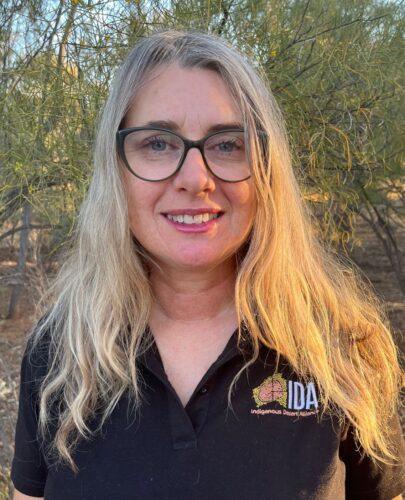 Dr Rachel Paltridge
Dr Rachel Paltridge
Threatened species ecologist, Indigenous Desert Alliance
Bio
Dr Rachel Paltridge is an arid-zone ecologist currently working for the Indigenous Desert Alliance. After completing her PhD on predator–prey interactions in spinifex grasslands, she spent 20 years as a freelance ecologist in central Australia, working primarily with Indigenous ranger groups on projects at the interface between research and management. From 2018–22, Dr Paltridge worked as the Coordinator of the Kiwirrkurra Indigenous Protected Area.
Dr Paltridge is passionate about 2-way science, integrating traditional Indigenous knowledge and skills with the latest technologies, and scientific methods to come up with innovative methods to manage and monitor biodiversity.
Research outputs linked to policy change and decision-making
- Threatened species monitoring and management. Dr Paltridge’s research has focused on understanding and managing the threats of fire and predation to threatened species, such as night parrots, great desert skinks and bilbies, and developing long-term monitoring programs for arid zone fauna. She has also studied the impacts of Indigenous burning practices and cat hunting on persistence of threatened species which has led to management recommendations for the protection of declining fauna.
- Predator ecology and control. Dr Paltridge has studied the ecology of cats, foxes and dingoes in the spinifex grasslands of central Australia since the 1990s. Her analysis of thousands of predator scats over this period has contributed to our understanding of the significance of cat predation on threatened species and the potential role of dingoes in regulating cat populations. Dr Paltridge has collaborated with various Indigenous ranger groups on long-term predator control programs including documenting the effectiveness of Indigenous tracking techniques to reduce cat impacts on threatened species, conducting an annual cat-baiting program to restore mammal populations on an island in the Gulf of Carpentaria and combining traditional tracking techniques with leg-hold trapping to control cats around a population of great desert skinks.
Current academic employment and positions
- ecologist, Indigenous Desert Alliance
- knowledge broker, Resilient Landscapes Hub.
Highest qualification
- 2005: PhD, University of Wollongong.
Roles on government or regional organisation committees
- National Bilby Recovery Team (since 2000)
- National Night Parrot Recovery Team (since 2014)
- Western Australia Feral Cat Working Group (since 2020).
Links with non-government groups or networks of relevance
- Advisory Committee member, Ngururrpa Indigenous Protected Area
- Advisory Committee member, Kiwirrkurra Indigenous Protected Area
- Director, Desert Wildlife Services environmental consultancy.
My Projects
 Current project
Current project Completed project
Completed project
NESP RLH, 2021-2027NESP, 2015-2021NERP, 2012-2015TRaCK, 2005-present
 Dr Rachel Paltridge
Dr Rachel Paltridge